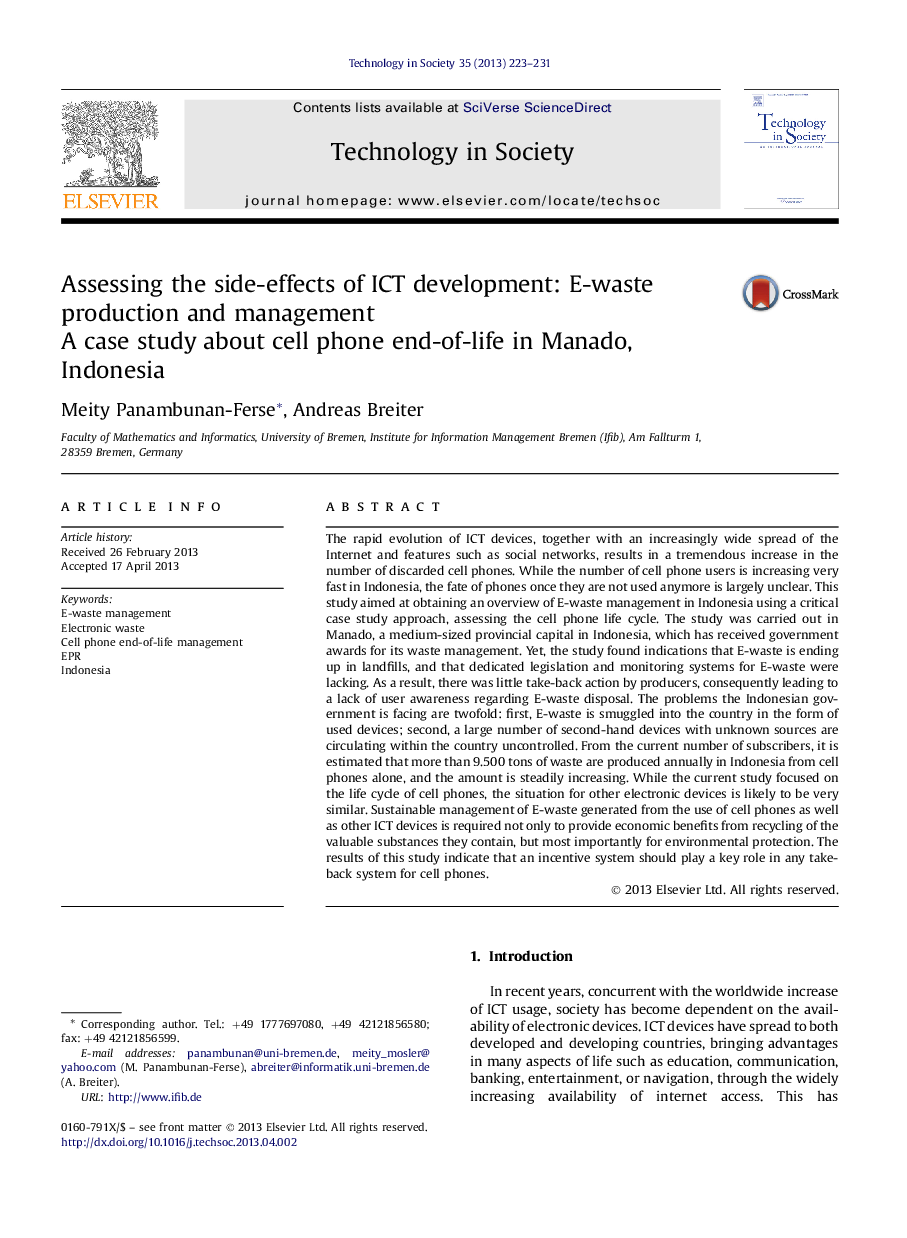| کد مقاله | کد نشریه | سال انتشار | مقاله انگلیسی | نسخه تمام متن |
|---|---|---|---|---|
| 375216 | 622676 | 2013 | 9 صفحه PDF | دانلود رایگان |
• In Indonesia, over 9500 tons of E-waste are generated yearly from cell phones alone.
• More than 80% of cell phone users interviewed owned at least one retired cell phone.
• E-waste management is still largely absent both at the national and regional level.
• Collection of discarded phones performed poor and did not account for user behavior.
• The recovery rate of E-waste in Indonesia is estimated at less than 1%.
The rapid evolution of ICT devices, together with an increasingly wide spread of the Internet and features such as social networks, results in a tremendous increase in the number of discarded cell phones. While the number of cell phone users is increasing very fast in Indonesia, the fate of phones once they are not used anymore is largely unclear. This study aimed at obtaining an overview of E-waste management in Indonesia using a critical case study approach, assessing the cell phone life cycle. The study was carried out in Manado, a medium-sized provincial capital in Indonesia, which has received government awards for its waste management. Yet, the study found indications that E-waste is ending up in landfills, and that dedicated legislation and monitoring systems for E-waste were lacking. As a result, there was little take-back action by producers, consequently leading to a lack of user awareness regarding E-waste disposal. The problems the Indonesian government is facing are twofold: first, E-waste is smuggled into the country in the form of used devices; second, a large number of second-hand devices with unknown sources are circulating within the country uncontrolled. From the current number of subscribers, it is estimated that more than 9.500 tons of waste are produced annually in Indonesia from cell phones alone, and the amount is steadily increasing. While the current study focused on the life cycle of cell phones, the situation for other electronic devices is likely to be very similar. Sustainable management of E-waste generated from the use of cell phones as well as other ICT devices is required not only to provide economic benefits from recycling of the valuable substances they contain, but most importantly for environmental protection. The results of this study indicate that an incentive system should play a key role in any take-back system for cell phones.
Journal: Technology in Society - Volume 35, Issue 3, August 2013, Pages 223–231
